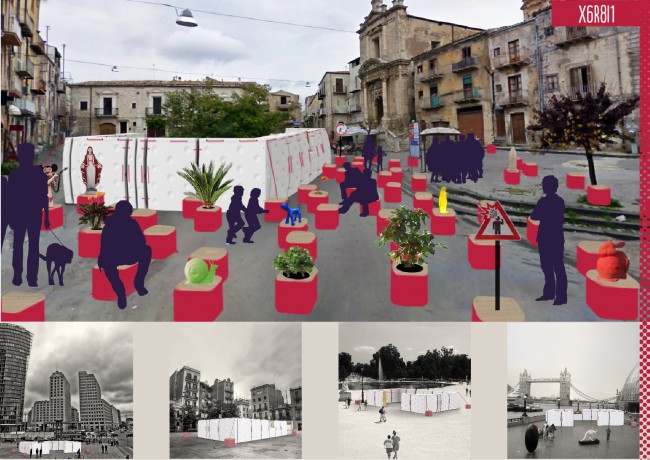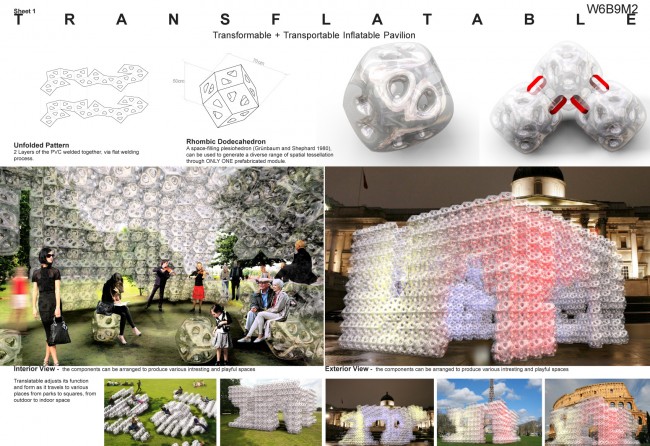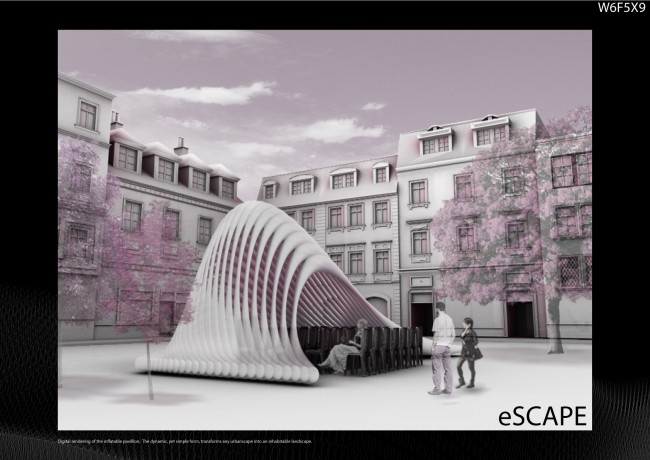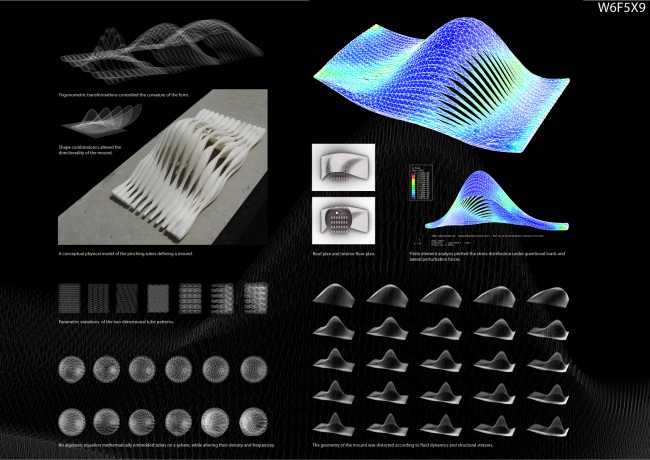Info:
Title: eSCAPE - Code: W6F5X9Contest: PFFF / 2012
By: J. Choma
Views: 2961 Likes: 0
Votes:
ITALO ROTA0 BENJAMIN BALL1 MARCO CANEVACCI3 VANESSA TODARO8 ANDREA BARTOLI14.8
eSCAPE
And if you think of Brick, for instance,?and you say to Brick,?”What do you want Brick?”?And Brick says to you?”I like an Arch.”
-Louis Kahn
DESCRIPTION
If you asked an inflatable tube what it wants to be it would first say a surface. The tube would want multiples of itself to connect to, distributing loads across numerous load paths, while increasing its surface area. Next, the tubes would want to pinch in and out to create porosity in the surface. Porosity would allow natural ventilation to flow through the structure, decreasing its turbulence. What three dimensional form would this surface want to take? First, it would take the shape of a mound or pillow. Then, as lateral shear forces are applied, the geometry would distort towards one side, resolving the structural moment diagram. The final result would be a dynamic, yet simple form, which could perceptually transform any urbanscape into an inhabitable landscape; an eSCAPE.
The form of this inflatable structure was generated using discrete mathematics. Trigonometric functions were used to describe the initial mound. Then shape combinatorics was used to control the curvature and orientation of the distortion of mound. Fluid dynamics was used to test the pinching pattern of the tubes; while finite element analysis was instrumentalized to determine a form with the most even stress distribution. Although this process seems extremely deterministic, initially the mathematics was used an instrument to generate ideas and parameters. The finite element analysis became the mechanism to quality those design permutations.
This project proposes to be built with use sewing methods on double needle machines for connecting sheets of PVC. At the ends of the inflatable structure, the tubes would be anchored into the ground. The side of the structure which touches the ground for a longer stretch would have tripled the number of anchors of the other side. The redundancy on the one side of the structure would help prevent the inflatable from twisting under lateral perturbation forces. The structure would be durable, easy to assemble and transport.








